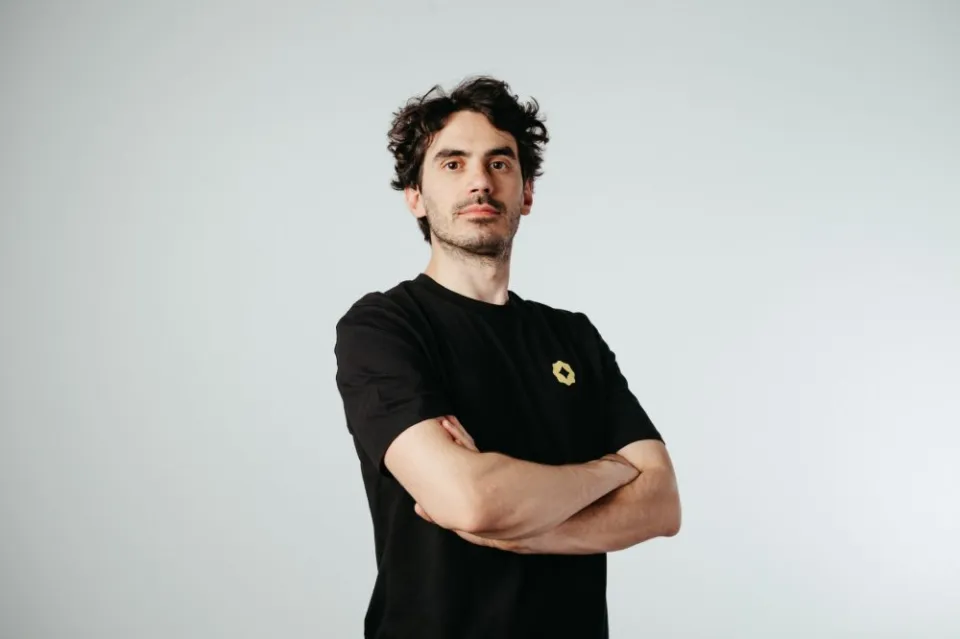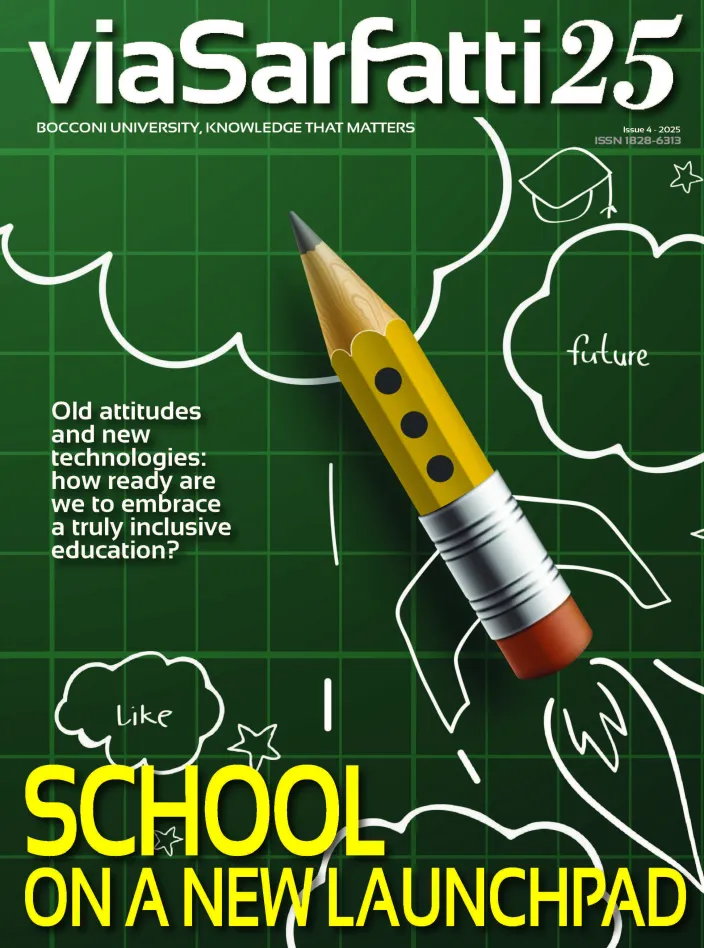
AI Enters the Classroom and Challenges the Entire System
As often happens in entrepreneurial genealogy, successful companies are born out of countering earlier negative experiences of entrepreneurs. This also happened to Antonio Pisante, founder of Yellow Tech, a technology training company specializing in AI and the education sector. “I never had a good relationship with schooling, at least until I joined Bocconi,” recalls Pisante, who graduated from the University in 2017. “Perhaps that's why, from the very start of my career, I've been so passionate about creating something useful to improve the school environment. Initially, I envisioned an AI-based chatbot tutor for students. It was an attempt — I believe the first ever — to democratize personalized learning with artificial intelligence, a potentially effective method to compete with the private tutoring model which had historically been elitist and unscalable. The idea was fascinating, but from a business perspective, it proved unsustainable: who would have the interest and the money to pay for such a tool?”
So you changed tack?
Exactly. We realized that it wasn't enough to provide the technology; it was essential to teach people how to use it correctly. Hence the shift towards training, which we pursue along two lines: raising awareness on the limitations of AI, for example, the "hallucinations" that large language models still provide in their answers, and developing practical skills to exploit their potential, from data analysis to research to the creation of new content. We started with companies, where there is a greater readiness for adoption for competitiveness and budget reasons, and then entered schools through public tenders, particularly those now funded by the National Recovery and Resilience Plan.
With Yellow Tech, you offer tailored courses for teachers, students and administrative staff. What are the specific benefits for each segment of the school population?
Our approach is different for each group. For teachers and administrative staff, the principle we espouse is the same: AI can help them perform their normal work faster, more efficiently and sometimes better. For teachers, we do an even more specific job, building AI courses after analyzing their actual daily activities: preparing teaching materials, grading assignments, communicating with families. We demonstrate how AI can automate or speed up these processes. The goal is to transform four hours of afternoon work into one, and dedicate time saved to the quality of teaching. And the quality actually increases: with AI, you can create personalized and interactive exercises, moving beyond the old method of copying and pasting from the internet. Similarly, we spent several days in a school to understand the various roles of all non-teaching staff. Much of their work involves analyzing and managing documents, writing emails, using Excel and doing presentations, and our courses show how AI can greatly streamline all these routine tasks.
Students, however, already know how to use these tools...
Yes, while only 20% of teachers in classes have already developed experience with ChatGPT, the percentage rises to 80-90% among students. Students already use AI in many activities, but often inappropriately, unaware of its inner mechanisms and limitations. Our work with them isn't about further encouraging the use of AI, but about increasing awareness of its potential and limits: explaining what hallucinations are, why a model can be wrong, what "AI ethics" means and how these software programs really work. Naturally, we also conduct hands-on activities and group work to teach how to use AI for research or presentations.
What are the factors that determine the success of an AI training course in the school context?
The quality of a trainer is the most important factor. They must have a thorough and accurate understanding of AI and, at the same time, have the teaching skills needed to inspire participants. Another factor is the age of the teachers. Finally, the right cultural sensitivity of school principals and a good organizational structure of the school play a crucial role. For example, we've noticed a significant difference between North and South of Italy: in the North, many more schools have proven to be equipped to seize the opportunities offered by public funding, often thanks to the presence of an active "digital animator" pushing innovation.
In the long term, do you see any risk that AI could "switch off” the brain of young people and even replace teachers?
There's a chance that future generations will lose trust in teachers, seeing an omniscient chatbot as a more reliable source of knowledge. On the other hand, however, frontal classroom teaching has remained nearly unchanged since Classical Greece, while everything around us has changed immensely; perhaps the time has come to rethink its value, always keeping the human mind at the center of pedagogy. However the habit of completely delegating reasoning to AI is indeed risky: in the long run, it can impoverish human intellectual capacity, just as the overuse of Google and search engines has ultimately unaccustomed us to memorizing. This is why it's crucial to work on user awareness and perhaps even establish an age limit for the use of certain AI tools, to allow critical thinking to fully develop. We ourselves, for student courses, follow the policies of major providers like OpenAI and our courses are only addressed to individuals over 14 years of age.
While there's a push for the integration of AI in classrooms, this year schools have banned smartphones in class. Isn't that a contradiction?
It may seem paradoxical, but I personally agree with this development. Precisely because these tools are so powerful and pervasive in young people's lives, it makes sense to create "disconnected" moments, like classroom time, to let their brains work unaided by digital devices. What’s important is not to demonize technology: students must be able to use these tools at home, because they are now part of the world. AI can be studied at school even without using it there, and then be applied at home. The goal is never to ban it, but to always educate about its conscious use.

